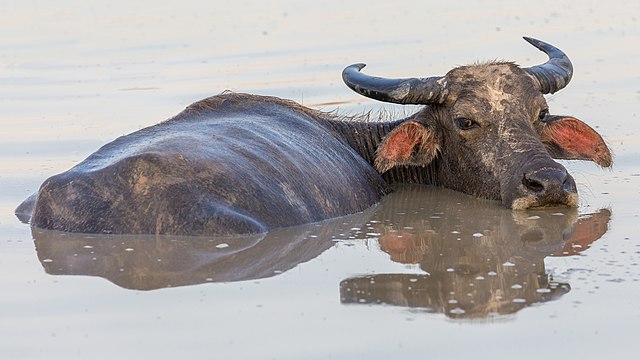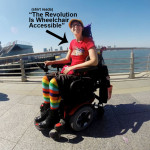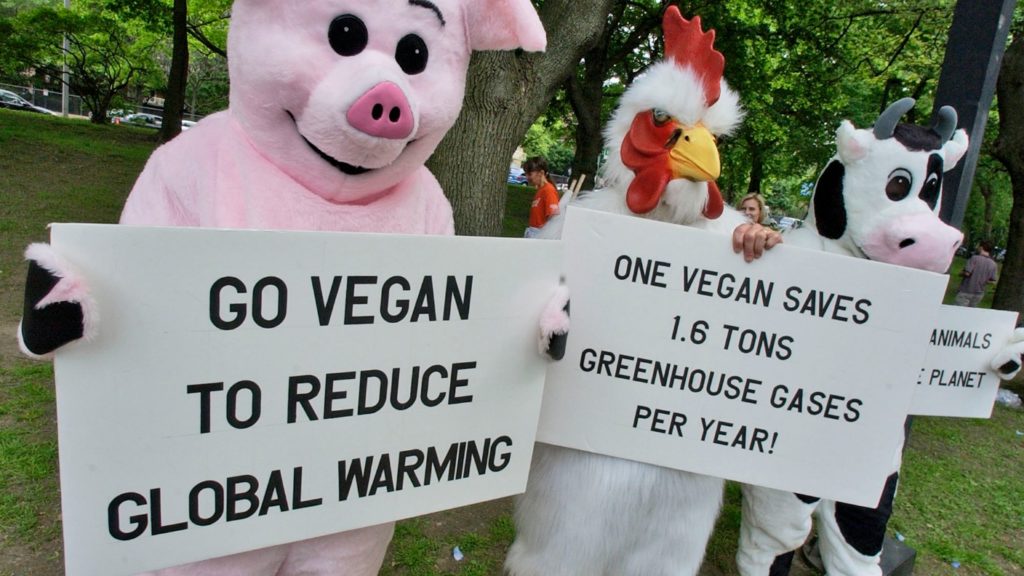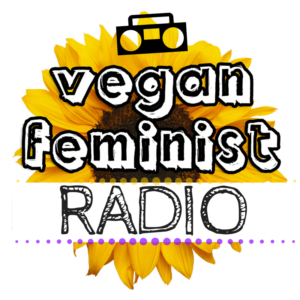“We could worship even animals but would not tolerate fellow humans to sit beside us.” Bhagat Singh, freedom fighter, in Issue of Untouchability, 1928.
“Do not keep contact with those who feed ants with sugar, but kill men by prohibiting them to drink water.” Babasaheb Ambedkar, chief architect of Constitution of India and social reformer, in What Path to Salvation? 1936.

We all want to align ourselves with what is good and kind, and we are only too willing to buy in to stories that reinforce our self-perception as ethical and humane. Myriad companies employ the strategy of “humane-washing” in an effort to capitalize on these instincts. Humane-washing is a way in which companies attempt to convince consumers that their products are less cruelly sourced than those of their competitors. A familiar example would be the label “cage-free eggs,” which might be accompanied by images of chickens living free in lush, idyllic pastures. To the contrary, “cage-free” often still results in thousands upon thousands of birds being crammed together in large warehouses; they’re just not kept in individual cages. The warehouse, in turn, serves as a sort of “mass cage.” In the entirety of their short lives, these chickens will never see a pasture.
Similar myths are propagated around “happy cows” in dairy production, deliberately obscuring the mechanics of the dairy industry— which include forced insemination, early culling of male calves, and a variety of other abhorrent practices about which we would prefer not to know. As long as we can be convinced that our milk or eggs are “humane,” we need not pursue the matter further.
Kindness to animals can be used as a tactic in signaling a moral character in general. In fact, Israel has been engaged in a more comprehensive “vegan-washing” in order to bolster its image as a just and peace-loving country. Along with other emerging social movements of interest to millennials, specific campaigns have been undertaken to promote Israel as a paradise for vegan living. Much has been made of the vegan options offered to the soldiers in the Israeli Defense Forces, including vegan leather boots. Palestinian activists have of course pointed out the irony of compassionate vegan options when the state is occupying their land. They point out that Israel is one of the biggest consumers of animal foods in the world, and that proportion of vegans in Palestine is reported to be twice that of Israel.
In many ways, India’s famed vegetarian diet and promotion of “ahimsa” as a fundamental tenet of Hinduism has a flavor of humane-washing to it. Along with other spiritual practices and the prominence of MK Gandhi, much of the animal rights movement outside of India (and even within it) holds up Hinduism as a model of nonviolence and compassionate care. Leaders of animal rights organizations in the USA sign off their emails with “ahimsa,” name their organizations “Aum,” and are often pictured with its Sanskrit symbol or Mr. Gandhi displayed prominently behind them. However, when we look beyond the surface, we see that “ahimsa” is actually a humane hoax, a deliberate campaign of humane-washing that hides violence against other humans as well as animals. The academician Pratap Mehta stated that “The centrality of ahimsa in the Indian tradition was not a description of our non-violent history. Quite the contrary, it was a testament to the centrality of violence…. the discourse on ahimsa was more a sign of violence inherent in [our] society.”
The humane hoax of ahimsa is a little like Israel’s vegan-washing campaign, only hundreds of years older. Only a minority (about 30%) of Indians practice vegetarianism, and these are predominantly the privileged castes. Dietary habits are one of the most blatant caste markers today, both in India and in the diaspora. If the rest of the world thinks of India as a “vegetarian nation,” it is only because members of its privileged castes— who have had a public voice denied to those of lower castes— are vegetarian, and the privileged minority have been eager to represent India.
The priestly caste of Hinduism is called Brahmin, and the original precursor to what later became Hinduism was known as Brahminism. Scriptural sources indicate that both meat consumption and animal sacrifices were part of religious practices during early Brahminism (1500 BCE)— and that, at a later point, privileged castes (particularly Brahmins) switched to a vegetarian diet. Who were the Brahmins? Why did they establish a sacrificial culture, and why did they later eschew it for vegetarianism?
Various sources (including linguistic and genomic evidence) indicate that the Vedas were composed by “Brahmins”— identified in this case not as people indigenous to the subcontinent but as migrants from the Steppe grasslands of central Asia who began to settle in northern India 3,500 years ago. The evidence suggests that the Steppe migrants imposed both sacrificial culture and the caste system on the indigenous peoples, who then began to rebel against both practices. Buddhism, the main opponent to Brahminical ideology, speaks against the injustice and irrationality of both the caste system and ritual animal sacrifice. In an attempt to overthrow the advancing threat of Buddhism, Brahmins decided to eschew meat in order to claim the moral high ground, as well as spiritual and bodily purity.
In other words, their reason for adopting vegetarianism was to ostracize others as “untouchable” and not compassion or desire for ahimsa. This is clearly explained by Dr. Ambedkar, India’s preeminent social reformer, in his book Who Were the Untouchables? (1948) and followed up by Dr Ilaiah Shepherd in the essay “Freedom to Eat” (Caravan India, 2019).[1] To quote Dr. Pratap Mehta again, “Behind the solicitude for the cow lay a visceral hate for beef eaters, as if the very gentleness towards the cow was merely a sublimated form of cruelty towards others.” In addition, the scriptures are also very revealing with respect to how different human communities were ranked in relation to each other— and, most importantly for this context, how they were ranked in relation to other animals. In other words, certain communities were first degraded and banished, then further vilified for eating the only foods available to them, in an endless cycle of ritual humiliation. In the current day, the formerly “untouchable” are called “Dalit,” they number between 200 and 300 million and are among most oppressed people in India and the world.
Even if we choose to disregard the history of vegetarianism as described by Dr. Ambedkar and others, we know beyond any doubt that meat- and beef-eating is associated with the majority oppressed caste population (which includes Muslims as well as the caste oppressed), and it is very much denigrated in the present day by the oppressor castes. The tensions continue to play out as the current ruling party in India, the BJP, has applied stringent cow slaughter bans over progressively more and more Indian states. The BJP is the political wing of the fascist Hindu nationalist organization, the RSS, which proposes to impose Brahminical values on the people of India. Cow slaughter ban might look like ahimsa to outsiders, but actually the consequences of the ban are to further marginalize and criminalize Dalits, Muslims and other groups. Over the last several years, the incidents of “cow vigilantism” have increased, where dozens of marginalized people have been killed and hundreds injured in mob violence upon the suspicion of eating beef or trading in cattle. Perpetrators of violence are punished by the government reluctantly, if at all.
Not only are humans being harmed, but also neither cows nor buffalos are truly protected by the beef ban. India remains one of the top exporters worldwide of both cow and buffalo beef. There are many legal loopholes that allow animals to be slaughtered despite the beef ban. While small butcher shops run by the marginalized have been targeted and shut down, large slaughter plants continue to function. Recent reporting by The Caravan India indicates that oppressor Hindu castes (specifically Brahmins) are in charge of the surreptitious transport and selling of cows into slaughter. Taken together, the evidence indicates that the tenet of nonviolence undergirding Hindu vegetarianism is merely a “humane hoax” that hides violence towards animals— including humans. The beef ban and related vigilantism underscore the throughline of our history: using professed nonviolence towards nonhumans to oppress and brutalize other humans.

Many characteristics of humane-washing can be found in both modern US marketing campaigns and Brahminical vegetarianism. Let’s consider some of them.
The basic characteristic of the humane hoax is the manipulation of language to obscure the truth. The humane myth is essentially an example of doublethink: to have some intimation of the truth, but also to believe a carefully constructed lie that is its opposite. By definition, it uses language that obscures and even reverses the actual meaning of words. “Humane slaughter” is an oxymoron, as there is nothing humane about the involuntary and premature death of an animal. A product in the US can be “Certified Humane” but still allow many types of confinement and mutilation. “Cage-free” and “free-range” mean intense confinement; “happy cows” mean confinement, forced insemination and separation from new-born calves.
Cruelty, in other words, is termed as its opposite, kindness. In the same way, Hindu scriptures also contrived to turn himsa into ahimsa. While switching from animal sacrifices in the early Vedic scriptures to “ahimsa” branding, intermediate scriptures reinterpreted ritual killing as non-harm: “Manu asserts that animals were created for the sake of sacrifice, a that on ritual occasions is non-killing and injury as enjoined by the Veda is known to be non-injury.” The scripture goes on to add that Vedic sacrifices were not only not harmful, but a benefit that accrued to both the animals being sacrificed and the persons who are carrying out the sacrifice.
The second characteristic of the humane hoax is that is promulgated by groups or organizations who are otherwise predicated on the well-being of animals. The Humane Society of the United States, the most well-funded advocacy organization for animals in the US, is a major player in the humane hoax arena. HSUS (and similar organizations) often strike deals with the animal-killing industry and promotes its “happy meat.” By carefully crafting a brand founded on animal protection, the HSUS not only provides cover for the use and abuse of animals but also profits from it.
In the same way, being predicated on ahimsa, anything that a Brahmin does is automatically cleared of any suspicion. In recent times, having a Brahmin surname and identity has provided useful cover when smuggling cows to sell to slaughter. In the Caravan article on Hindu cattle-smuggling networks, Rajesh Prakash narrates:
“…the social worker… explained why Brahmins had an advantage when it came to transporting cattle. “It’s only the Brahmin caste that can come and go with the cow anywhere,” he said. “He will neither be caught nor killed in the name of cow protection, nor will the police arrest him. If a Brahmin is taking a cow to sell it for slaughter and someone stops him on the basis of suspicion, he can make an excuse that the cow has come as a donation from some village and he is taking it to some other village.”
The humane hoax offers exceptions for cruelty if they are supposed to serve some greater purpose that is vaguely but reverentially described. Authors like Michael Pollan talk about the intelligence and moral virtue of animals even as they relish hunting and eating them because it satisfies some delirious, quasi-spiritual concept of the Circle of Life. Some of the mystical language in the Pollan’s book, The Omnivore’s Dilemma, may come right out of the Rig Veda or the Upanishads. For instance, Pollan writes, “Sun-soil-oak-pig-human: There it was, one of the food chains that have sustained life on earth for a million years made visible in a single frame, one uncluttered and most beautiful example of what is.”
In the Vedic literature, sacrificial rituals were undertaken to impose order on the universe. Even the creation of the cosmos was through sacrifice of Purusa, the primordial being, which gave existence to the four castes as well as the rest of creation. It says, “It was Purusa, born in the beginning, which they sprinkled on the sacred grass as a sacrifice.” The Upanishads, considered the most supreme and lofty of the Hindu scriptures, begins with comparing the sacrificial horse to the parts and processes of the material universe.

In the current day, a reworking of the humane myth certifies the cow (“gho”) as the “divine mother” to allow us to consume dairy despite the inherent exploitation.
“To the Hindus, the cow is sacred because it represents life and fertility. On account of the manifold usefulness of the cow, India has conferred a religious role upon the cow, having raised her to the status of a goddess, mother to one and all and an object of worship. In the appellation gho-mata, mata (mother) is more attached to cow than any other goddess in Indian mythology.”
Owing to this reverential labeling, the cow becomes the most abused animal in the subcontinent. Even though Brahminism has eschewed meat sacrifices, it has adopted the use of dairy products in religious ceremonies— which is no less cruel. Cow’s milk, ghee, and yogurt are routinely used in temple ceremonies in copious quantities.[2] Because of the slaughter ban, dairy farmers who would normally sell “spent” dairy cows to slaughter are forced to set them free to roam because they cannot afford to feed them. These cows wander onto busy streets and fields where they suffer abuse. One of the most insidious and uniquely Indian form of abuse is “acid attacks,” where stray cows are severely burned in an attempt to protect crops.
In the Western animal rights community, we hold up Indian vegetarianism as a beacon of hope for animal protection. However, when we look beneath the surface, it appears that Hindu “ahimsa” is actually a humane hoax, because it was originally intended to marginalize human communities; that it continues to do so under the cow slaughter ban; and that, ultimately, it does not really protect animals. “Ahimsa,” like “cage-free eggs” or “happy meat,” is just another humane-washing term, intended to distract us from the underlying violence against sentient beings, humans and other animals alike. We do not do the animal rights movement any favors by continuing to adhere to this hypocrisy. The people oppressed by the professed “ahimsa” number in the hundreds of millions, and they are only too aware of the duplicity. They hold in contempt the bogus value ahimsa, which claims to protect animals at their expense.
As the animal rights movement continues to claim “ahimsa” as its slogan, the people who have been oppressed by it increasingly see the movement as hollow, superficial, and misguided. As freedom fighter Bhagat Singh as has said, we need to look behind the reason why Hindus worship nonhuman animals, but won’t let a fellow human sit next to them. As Dr. Ambedkar has said, we need to understand why Hindus have fed ants sugar while they deny Dalits drinking water. Ultimately, the animal rights movement needs the support of all humans, not just the privileged ones; and it is not going to get it with humane-washing terms that are used to alienate and degrade humans.
[1] See also Jotiba Phule’s 1885 book “Gulamgiri” (Slavery) for a similar account.
[2] * Dr Kancha Ilaiah has termed these wasteful practices “anti-surplus generation mechanisms” – a way to prevent accumulation of surplus keeping the oppressed masses hungry and engaged in perpetual food production.
Rama Ganesan lived in Chennai until the age of 10, when she emigrated to the UK with her family. She then moved to the US in her twenties with her spouse. She received her BA from University of Oxford, a PhD from the University of Wales, and an MBA from the University of Arizona. She has two grown children, a dog and two cat companions. After reading “Eating Animals” by Jonathan Safran Foer, Rama began to explore the philosophy of animal rights and veganism. Over time this developed into an interest in the common roots of oppression of both humans and animals. She can be found on Instagram and Medium.













